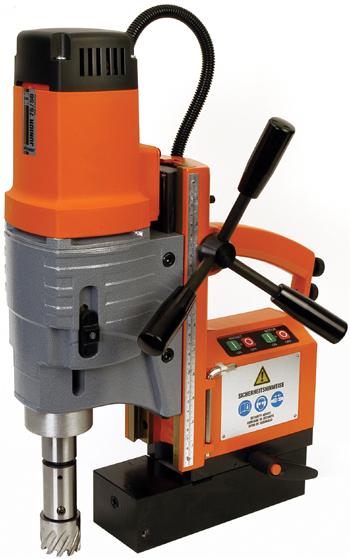Selecting the right core drill machine for your project is essential to ensure efficiency, accuracy, and safety. Core drilling is a critical task in many construction and renovation projects, allowing for precise holes in concrete, stone, and other hard materials. Here’s a comprehensive guide to help you choose the best core drill machine for your needs.
1. Understand Your Project Requirements
a. Material to Be Drilled
Determine the type of material you will be drilling. Different materials require different drill bits and machines. Common materials include concrete, asphalt, brick, stone, and reinforced concrete.
b. Hole Diameter and Depth
The size and depth of the holes you need will influence the type of core drill machine you should choose. Larger and deeper holes require more powerful machines.
c. Project Scale and Frequency
Consider the scale and frequency of your drilling tasks. For large-scale or frequent projects, investing in a high-quality, durable machine is essential.
2. Types of Core Drill Machines
a. Handheld Core Drills
Handheld core drills are portable and suitable for smaller, less demanding tasks. They are ideal for drilling small to medium-sized holes and are often used in situations where maneuverability is crucial.
b. Stand-Mounted Core Drills
Stand-mounted core drills provide more stability and power, making them suitable for larger and deeper holes. They are ideal for heavy-duty projects and professional use.
c. Rig-Mounted Core Drills
Rig-mounted core drills are designed for large-scale, industrial projects. They offer maximum stability and power and are capable of drilling very large and deep holes.
3. Power Source Options
a. Electric Core Drills
Electric core drills are commonly used for their convenience and reliability. They are suitable for indoor and outdoor use and come in various power ratings.
b. Hydraulic Core Drills
Hydraulic core drills offer high power and are often used in heavy-duty applications. They require a hydraulic power source, making them less portable but very effective for tough materials.
c. Pneumatic Core Drills
Pneumatic core drills are powered by compressed air and are ideal for use in hazardous environments where electric or hydraulic machines might pose a risk.
4. Key Features to Consider
a. Power and Speed
Look for a machine with adequate power and adjustable speed settings to handle different materials and drilling conditions.
b. Cooling System
A good cooling system is essential to prevent overheating and prolong the life of the drill bit and machine. Water-cooled systems are common for core drills.
c. Safety Features
Ensure the machine has safety features such as overload protection, slip clutch, and emergency shut-off to protect both the operator and the equipment.
d. Portability and Ergonomics
Consider the weight, size, and ergonomic design of the machine, especially if you need to move it frequently or work in confined spaces.
5. Budget and Brand Considerations
a. Budget
Determine your budget and look for machines that offer the best value for your money. Keep in mind that investing in a quality machine can save you money in the long run.
b. Brand and Warranty
Choose reputable brands known for their reliability and customer support. Check the warranty and service options available to ensure you have support if needed.
6. Accessories and Drill Bits
a. Drill Bits
Select the appropriate drill bits for your material and project requirements. Diamond-tipped bits are commonly used for their durability and effectiveness.
b. Accessories
Consider additional accessories such as stands, water supply kits, and vacuum pumps to enhance the functionality and efficiency of your core drill machine.
7. Reviews and Recommendations
a. Customer Reviews
Read customer reviews and testimonials to get an idea of the machine’s performance and reliability in real-world applications.
b. Professional Recommendations
Seek advice from professionals in the industry or consult with sales representatives to get personalized recommendations based on your specific needs.
Conclusion
Choosing the right core drill machine involves understanding your project requirements, evaluating different types of machines, considering power source options, and looking at key features, budget, and brand reliability. By carefully assessing these factors, you can select a core drill machine that meets your needs and ensures successful project outcomes.



